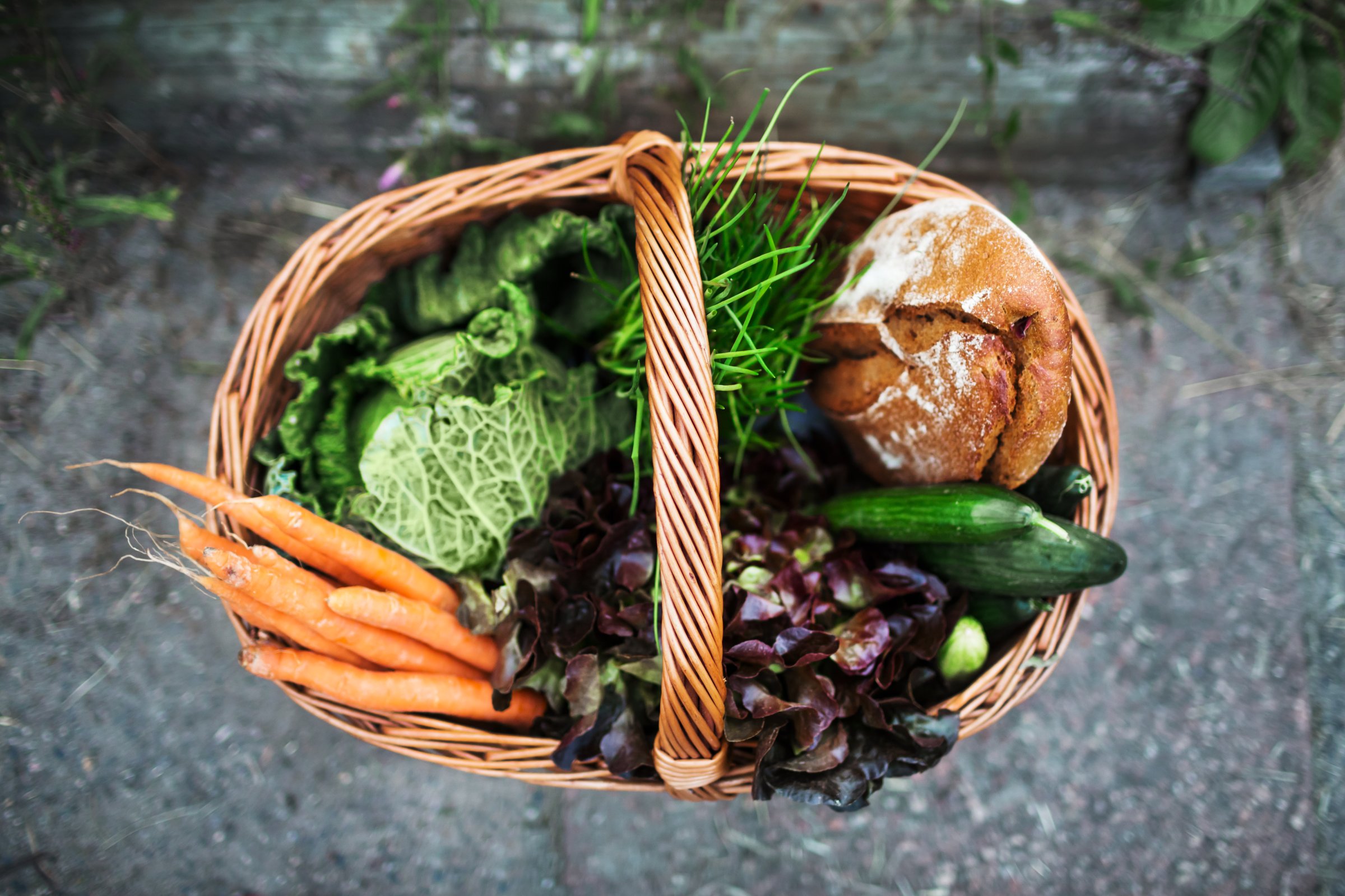
We are what we eat, the old cliché goes, and there’s plenty of evidence to support it: eating healthy foods really can lead to a healthier life. But can food actually lower your risk of dying from a disease like cancer?
In a new study published in JAMA Oncology, researchers find some intriguing evidence that diet may indeed lower the risk of dying from cancer. Dr. Rowan Chlebowski, research professor at the City of Hope National Medical Center, and his colleagues analyzed data from more than 48,000 women enrolled in the ongoing Women’s Health Initiative, a large national study at 40 centers across the U.S. All of the women were cancer-free at the start of the study, and nearly 20,000 were randomly assigned to change their diet and lower their fat intake to about 20% of their daily calories (the average American eats about 30% of their daily calories from fat). They were also encouraged to eat more fruits, vegetables and whole grains. The other women weren’t given instructions to change their diet but were educated about nutrition and a healthy diet.
After 8.5 years of follow up, in which the researchers tracked the number of cancers that were diagnosed and the causes of death for women who died, the scientists found that among women diagnosed with breast cancer, those in the low-fat diet group lowered their risk of dying from the disease by 22%, compared to women in the regular diet group. The low-fat group also had a 24% lower risk of dying from other cancers and a 38% lower risk of dying from heart disease compared to women assigned to the diet education group.
“What we see is a pretty remarkable effect,” says Chlebowski. While previous studies looked at the effect of diet before cancer diagnoses, the current study was able to analyze how diet seemed to affect cancer after a diagnosis, since the women continued with their assigned diet whether they were diagnosed with cancer or not. “What we’ve shown is that it looks like dietary intervention after diagnosis [of breast cancer] was more important than dietary intervention before diagnosis.”
The study also hinted that women who stuck with the lower fat diet for longer periods had the strongest chances of surviving breast cancer; this trend was supported by the fact that the benefit seemed to wane after the study ended.
The benefit in reducing cancer death came even with relatively modest changes in the women’s diets; while the target was 20% of a day’s calories from fat, many women were only able to achieve 25% or even 27% of their daily calories from fat, Chlebowski says. “It seemed like the intervention needed was quite modest.”
Given the number of people involved in the study, Chlebowski says the idea of including diet as part of treatment programs for diseases including cancer should gain support. He notes that other studies—particularly those looking into the microbes that live in and within the body and are affected by what we eat—lend support to the possibility that food can affect our biology, and in turn, our vulnerability and response to disease. “This idea is now entering the mainstream and is getting focused, high-level research attention,” he says.
He is continuing studies to see if he and his colleagues can isolate the processes that tie diet to improved cancer survival, and investigate whether these can be turned into treatments that can increase people’s chances of surviving diseases like breast cancer. “It’s exciting because we are really trying to close the gap between lifestyle factors like diet and biological processes behind disease,” he says. “Emerging data like this are helping us to do that.”
More Must-Reads From TIME
- The 100 Most Influential People of 2024
- Coco Gauff Is Playing for Herself Now
- Scenes From Pro-Palestinian Encampments Across U.S. Universities
- 6 Compliments That Land Every Time
- If You're Dating Right Now , You're Brave: Column
- The AI That Could Heal a Divided Internet
- Fallout Is a Brilliant Model for the Future of Video Game Adaptations
- Want Weekly Recs on What to Watch, Read, and More? Sign Up for Worth Your Time
Contact us at letters@time.com